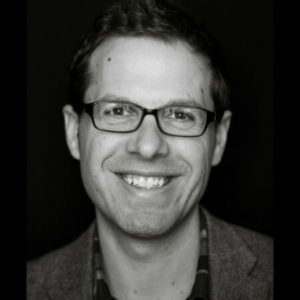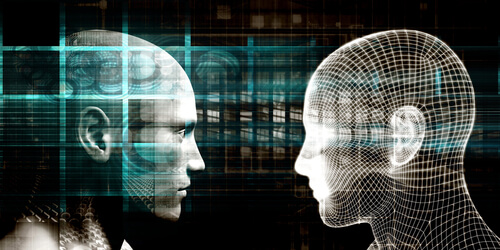AlgoFace sat down with David Ryan Polgar, Founder of the non-profit All Tech is Human, an organization committed to building a responsible tech ecosystem by uniting a diverse range of stakeholders in co-creating a better tech future.
David is a tech ethicist and a lawyer by training. He is a sought after international speaker and commentator and a member of TikTok’s Content Advisory Council. He talks about #democracy #responsibleai #responsibletech and how #alltechishuman.
Interview with David Ryan Polgar
Founder of All Tech is Human Part 3
Question: Do you think there are any companies that are doing it right?
I’m optimistic about what is happening. AI companies are being founded by people who want to ensure that their goal is aligned with the public interest. That’s a big difference from what we have seen in the past.
Something that I would like to point out and have struggled with is that ethical decisions cannot be driven by people in positions of power. It has to be a collective effort.
It’s very hard to change somebody’s personality. We need to hire ethicists based on their ability to grow. You can always learn a new skill but you cannot train someone to be more ethical. My positioning has always been, let’s not just focus on getting traditional technologies to be more ethical, let’s expand the definition of who’s involved in technology to get people who are naturally aligned with ethics to be involved in the tech process.
I’m obsessed with changing the overall narrative that exists. The belief is that just because somebody works in the tech industry, they’re a technologist. That’s not true. I’ve spent my entire career in tech, yet I don’t have a background in technology.
I think that one of the reasons why I was able to carve out a career in technology is because I don’t get wowed by emerging technology. Don’t get me wrong, I find it interesting but I take a more comprehensive view of what it can do and will do.
Instead of getting wrapped up in the newness of technology, we need to tap into hundreds of years of learnings from other disciplines such as history, psychology, social work, etc. to better design technology.
Question: I want to know what you’re optimistic about and what keeps you up at night.
I’m optimistic about the passion and potential I see in the next generation. Ever since I launched All Tech is Human in 2018, I’ve seen tech ethics and responsible tech resonate with college students, graduate students, young professionals, etc.
They’re forming clubs. I am really kind of optimistic that we’re going to have a future where an interdisciplinary approach to responsible tech will not be unusual anymore. It will become the norm.
What keeps me up at night is what I hear directly from students about our approach to education. The traditional college model is not designed to be interdisciplinary. Our model needs to change. It’s broken.
Students reach out to me all the time wanting to know how they can take part in All Tech is Human because they cannot access classes on the topic at their university because it may be only offered to tech students and not to liberal arts majors. Students are now having to take a very entrepreneurial approach to learning more about responsible tech. It is very bits and pieces.
What we’re doing as an organization is we’re connecting them bottom up. We’re saying, you know what?</span></h4> This is going to be really hard. It’s not happening at the university level. Our organization is connecting hundreds of passionate student leaders in a sort of cross mentorship approach. They are learning from each other.
Another thing that keeps me up at night is the misconception that technology is just for technologist. Unfortunately what is happening more and more often is that someone who wants to be involved in the ecosystem and wants to select this as their career choice believes there is no space for them as they are not studying technology.
We need to create conditions that allow for that person to be educated and inspired, knowing that there is a pathway in. I hear this all the time at our tech mixers. People say I had this great conversation and was really surprised as I had no idea that these types of individuals were interested.
My view is that If you are deeply affected by technology, you should have the ability to affect how it’s developed and deployed. Just like a democracy, you have the ability through a representative government to affect change.
Another thing that keeps me up at night is, for example, if you are working at a Think Tank, you make top down decisions based on the opinions of a handful of thought leaders. These thought leaders work on an idea for a year or two and then disseminate it. Basically, create a thought, iron it out, and then say to the masses take this great idea and run with it, plug it in, disseminate it, share it. Whereas All Tech is Human does the reverse because we’re intertwined, We are bidirectional by design.
We launched our mixers to be able to expose different disciplines to tech and to create open working groups. Anybody can join. We get people who are new to the space. Maybe they just saw or read a book about it or saw a movie. We are creating a community because you need a community to create bi-directional conversations.
It is like a democracy. It’s about what my neighbor wants and what people across the globe want. Eventhough, I don’t have the same lived experience as another person, how do I bring them into the equation to expose them to what we are doing and to see what we are missing. Does it always have to be consensus? Maybe it’s just food for thought, but it doesn’t always have to have a consensus.
____________________________________________________________________

About David Ryan Polgar:
David Ryan Polgar is a pioneering tech ethicist, Responsible Tech advocate, and expert on ways to improve social media and our information ecosystem, along with increasing the ethical considerations regarding emerging technologies. He specializes in uniting a diverse range of stakeholders in order to tackle complex tech & society issues, cultivating conducive environments for forward progress.
David is the founder of All Tech Is Human, an organization committed to connecting and expanding the Responsible Tech ecosystem; making it more diverse, multidisciplinary, and aligned with the public interest. As the leader of All Tech Is Human, he has created a unique grassroots-meets-traditional-power-structure model that is uniting thousands of individuals across the globe to co-create a better tech future. The non-profit has a Slack community of over 4k, has profiled hundreds of leaders in the ecosystem, holds regular summits and mixers, developed a mentorship program, and more.
In March 2020, David became a member of TikTok’s Content Advisory Council, providing expertise around the delicate and difficult challenges facing social media platforms to expand expression while limiting harm. He appears in the newly-released documentary, TikTok, Boom. David is an expert advisor for the World Economic Forum’s Global Coalition for Digital Safety.
An international speaker with rare insight into building a better tech future, David has been on stage at Harvard Business School, Princeton University, Notre Dame, The School of the New York Times, TechChill (Latvia), The Next Web (Netherlands), FutureNow (Slovakia), Infoshare (Poland), the Future Health Summit (Ireland), NATO, and many more. His commentary has appeared on CBS This Morning, TODAY show, BBC World News, MSNBC, Fast Company, The Guardian, SiriusXM, Associated Press, LA Times, USA Today, and more.
David is a monthly expert contributor to Built In (writing about the Responsible Tech movement), and an advisory board member for the Technology and Adolescent Mental Wellness (TAM) program, and a participant in multiple working groups focused on improving tech and aligning it with our values.
The main throughline throughout David’s work is that we need a collaborative, multi-stakeholder, and multidisciplinary approach in order to build a tech future that is aligned with the public interest.




